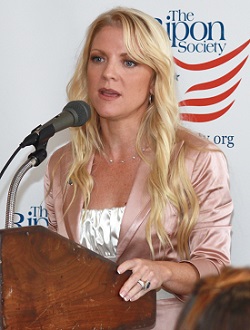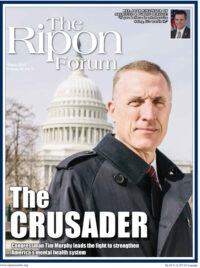
Our nation has been at war for more than 12 years. Since September 11, 2001, we have sent more than 2 million of our sons and daughters into harm’s way. These patriots have selflessly volunteered to defend the freedoms we hold dear as Americans.
As more and more of our service members return home, the responsibility of our nation to live up to promises made is getting more difficult.
One of the greatest challenges facing service members and veterans suffering from Post-Traumatic Stress Disorder (PTSD) and Traumatic Brain Injury (TBI) is the stigma associated with these diagnoses. These heroes are suffering internally through no fault of their own. It is easy to see the physical wounds, but it’s impossible to look inside the mind of a man or woman who needs help.
According to the National Institute of Health, there are more than 600,000 veterans with PTSD. In 2012, there were 50,000 cases of PTSD diagnosed, and some estimate 184 new cases are diagnosed each day. Since 2001, there have been more than 230,000 cases of Traumatic Brain Injury.
According to the National Institute of Health, there are more than 600,000 veterans with PTSD.
These numbers are staggering. Unfortunately, they’re also increasing each year. This is an epidemic.
Now, as citizens, it’s our turn to act. This is why we have launched the Help Save Our Troops campaign at the Armed Forces Foundation (AFF).
The Help Save Our Troops campaign proactively educates Americans about the invisible wounds of war, including PTSD and TBI, and advocates for those troops and veterans who have suffered these hidden wounds. The ultimate goal of Help Save Our Troops is to reduce military suicides. Through this campaign, the AFF provides counseling services for military families, including children, grants for therapy and addiction counseling, and runs a variety of recreational group therapy programs to boost morale among service members, veterans, and their families.
Tragically, for some families, it is already too late. In 2012, there were 349 suicides among active duty service members, which is more than were killed in action. Currently, one veteran commits suicide every 65 minutes, up from one every 80 minutes during 2012. This, too, is an epidemic that deserves national attention and needs to end.
In 2012, there were 349 suicides among active duty service members, which is more than were killed in action.
The Help Save Our Troops campaign also seeks to alter the way that the military healthcare system deals with the repercussions from the invisible wounds of war. The AFF is advocating for an 18-month extension of TRICARE mental health benefits, which would allow service members and veterans to access the care they so urgently need, even if the problems take root long after the initial injury is sustained.
Another step that Congress can take is passing the reauthorization of the TBI Act, which would allow for grants to be extended through 2018 to provide better access to rehabilitation services.
The AFF has also partnered with USC’s Center for Innovation and Research on Veterans and Military Families in an effort to provide veterans with counselors who have served in combat situations themselves. Additionally, the AFF established a partnership with the Johns Hopkins University Military and Veterans Health Institute to work on innovative research in tissue regeneration, PTSD and TBI therapies, and better ways to diagnose these wounds. Doctors from Johns Hopkins have participated in the Foundation’s Congressional Lecture series and other programs discussing PTSD and TBI and the innovation being conducted at the Institute. Since 2011, the AFF has partnered with Johns Hopkins University School of Medicine’s Department of Plastic Surgery on an awareness effort for their innovative hand and face transplant program.
There are many promising advancements being pursued in the medical treatment of invisible wounds. A blood test is being developed in order to more accurately diagnose the severity of a TBI soon after the injury. Research is being done to determine the effectiveness of hormone treatments that could improve the outcomes of people suffering from TBI.
These efforts rely on modest financial support from Congress, but have the potential to drastically impact treatment for these invisible wounds. The AFF is committed to raising awareness for these programs and advocating for more research into healing the long-term impacts.
The AFF prides itself on returning 95 cents of every dollar raised to help service members, veterans, and their families cope with the invisible and physical wounds and ensure we truly live up to our motto of “Serving those who Serve.”
We don’t want anyone to become a statistic. We’re here to help.
Patricia Driscoll is President and Executive Director of the Armed Forces Foundation.




